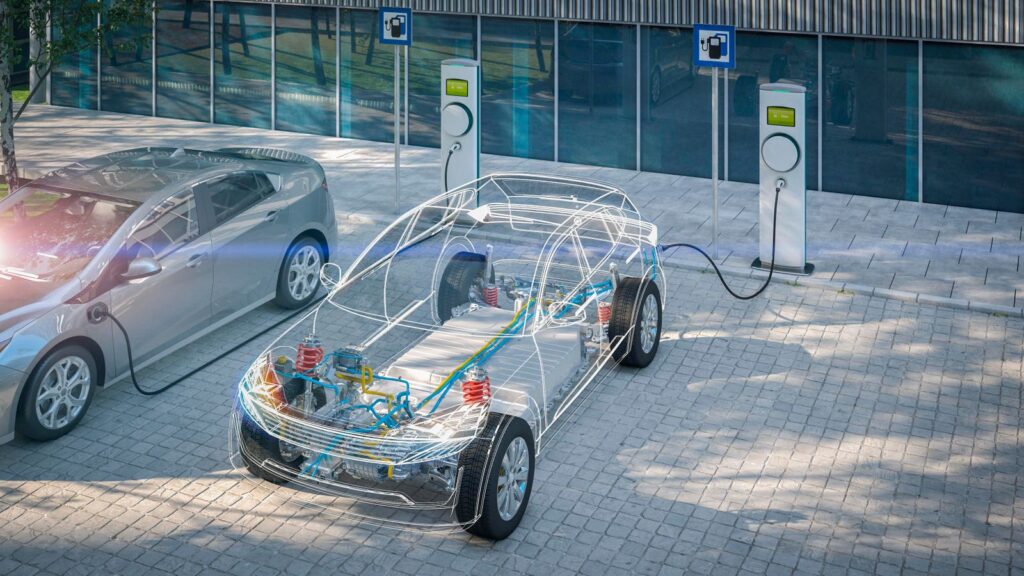History is full of black swan moments: moments when everyone expects life to continue the same way for decades, but then it doesn't. Nassim Nicholas Taleb popularized the term in his 2007 book of the same name, just in time to make it seem as if he predicted the stock market crash of 2008-2009. Taleb claims he didn't. The 9/11 attacks were black swan events, and so is the coronavirus pandemic (at least for some people). But there's another large, dark-colored aquatic bird that's just starting to spread its wings: the electric car.
The electric vehicle future is coming sooner than some automakers originally thought.
Many incumbent automakers did not take the EV revolution seriously and are only now beginning to realize their mistake, perhaps too late for some. This should not come as much of a surprise to anyone who has been in the digital technology business for the past few decades. Disruption has been a part of anything related to technological innovation for millennia, but it has accelerated considerably in the digital age.
The Internet seems to have been around forever now, but 20 years ago no one knew what impact it would have. However, online connectivity has revolutionized so many sectors. Magazine and newspaper circulation plummeted, and only those brands that successfully transitioned to an online model, like the one you are reading now, survived. Retail, taxi companies, holiday rentals, travel agencies, and many other sectors have also had to reinvent themselves in just a few decades due to the unexpected arrival and impact of the Internet. These impacts have not all been good. The toxicity of social media has had a profoundly negative impact on our society and culture, and we have yet to figure out how to remedy it. However, the impacts of online connectivity will continue to be felt for the foreseeable future.
EVs will have similar disruptive consequences. Over 1 million EVs were sold in Europe in 2020, and in the US, the number is expected to reach 585,375 in 2021, with sales also booming in China. Companies and individuals with large investments in traditional fossil fuel industries are starting to react in a typical way by trying to discredit what they see as a threat. In the UK, there was the infamous #AstonGate incident, where a highly dubious report backed by Aston Martin and others twisted the facts and claimed that EVs are actually more polluting than fossil fuel cars (only at the start of production, and not at all during their entire life).
An American reporter from TorqueNews, who seems to write mostly positive articles about Toyota and Mazda cars, gave several examples of people buying RAV4 Primes instead of Teslas, suggesting that hybrids are generally better. In contrast, a recent, less anecdotal survey in the UK by ZapMap found that only 1% of EV owners actively want to go back to fossil fuels, and 91% say they definitely won't.
Another critical piece by a journalist from The American Spectator rehashes the tired trope that EVs take too long to charge. The piece is based on a common misconception often seen on social media. The argument is that EVs are completely useless because they can't drive 4,000 miles a day with one two-minute fill-up along the way like a diesel-engine SUV. The misconception is that EVs are an exact replacement for internal combustion cars. But the lifestyle of owning an EV is different.
EVs drive and perform the same functions as fossil fuel cars, but the fueling routine is not the same. Most people don't drive hundreds of miles at a time, more than twice a year. This means that charging at home is sufficient and there is little need to go to a dedicated fueling station. Not everyone can charge at home, but EV chargers are much cheaper than gas pumps, so it is entirely feasible to install chargers in most car parks and keep your car charging while you go to the mall or leisure centre and do other things. An article in the American Spectator sarcastically argues that while you won't wait 15 minutes for a burger, your visit would take longer than that if you ate that meal on the spot. This is more than enough time to charge an EV using 150kW or more DC charging. Long distance trips require breaks, and most EVs are more than charged in the time it takes to have a snack.
Perhaps most insidious is the “self-charging hybrid” ad campaign, which seems to suggest that hybrids can magically replenish their batteries. This is clearly an attempt to slow down pure EV purchases, coming from a company that is so far behind in developing its own pure battery electric strategy that it failed to take the Tesla threat seriously when it first became apparent. But at best, this campaign may provide a brief headstart on the inevitable.
Tesla's $25,000 compact car will likely be just one step in the rapid adoption of electric vehicles in the near future.
There is one clear motive behind these attacks: fear of a rapidly approaching disruptive event that will flip the standard of mass oil-powered transportation we have followed for a century in a very short time. The $25,000 Tesla is just around the corner, but whether we like it or not, EVs are coming fast, just as the revolution of the personal computer, smartphone, internet, etc. swept through all of them.
Some companies, such as Volkswagen, Renault-Nissan, Hyundai-Kia, Groupe PSA (including Peugeot, Citroen, Opel-Vauxhall, etc.), saw the magnitude of the situation early and have a chance to weather the storm. But there will be brands that seem to be with us forever and fall by the wayside. Think of all the centuries-old banks that collapsed during the Black Swan of 2008. This is why big oil companies are scared of electric cars: they are a very real threat to their future.

